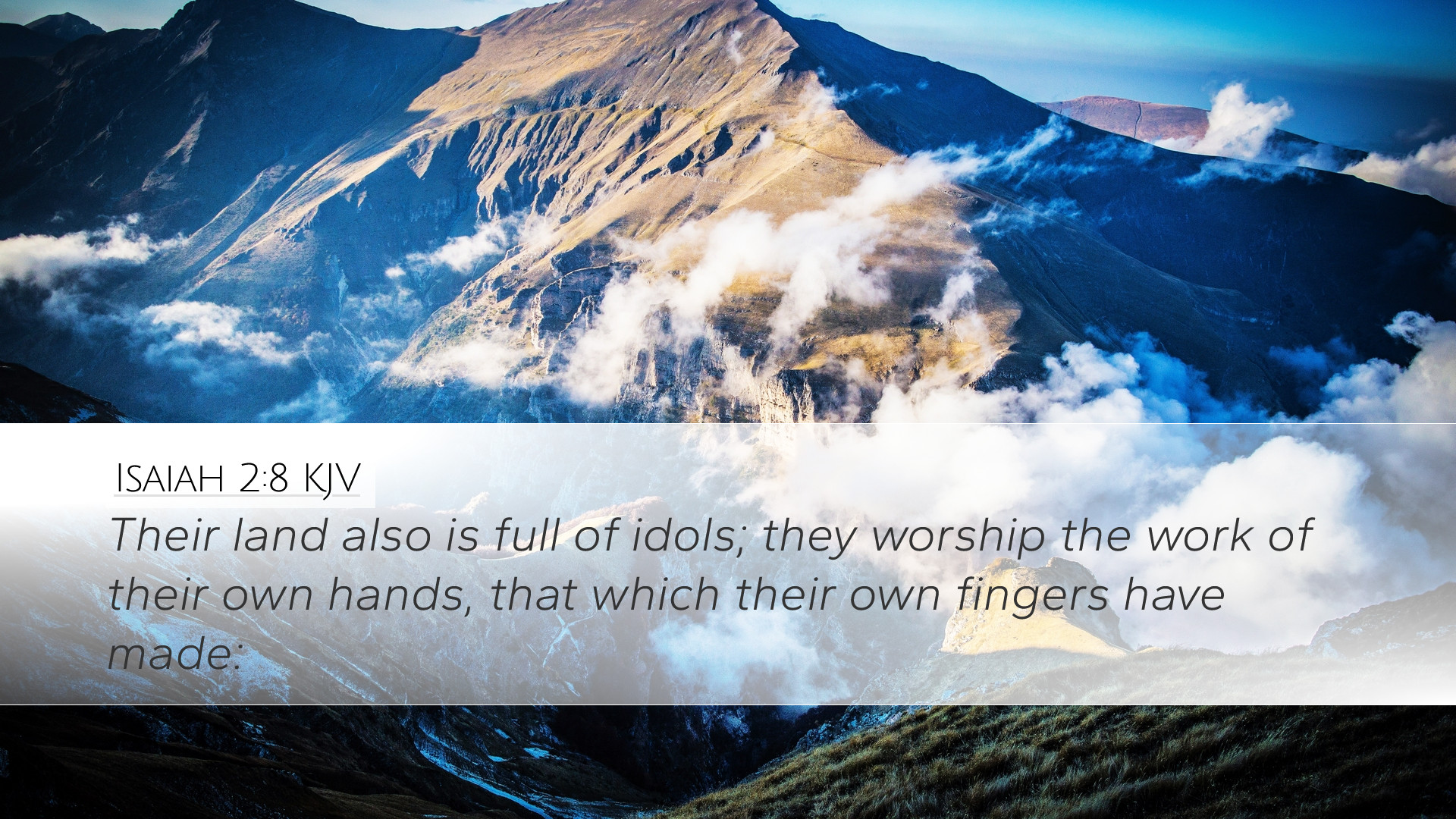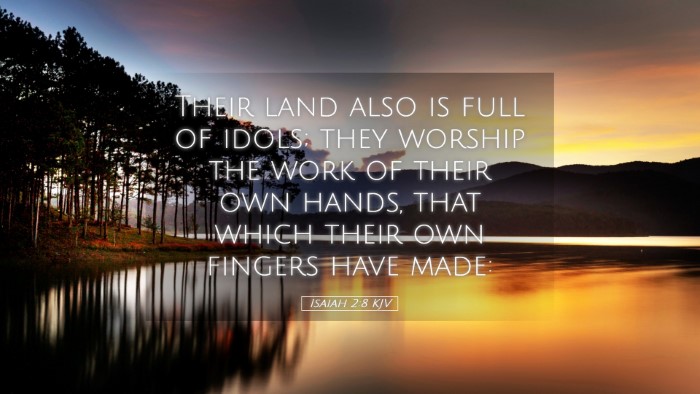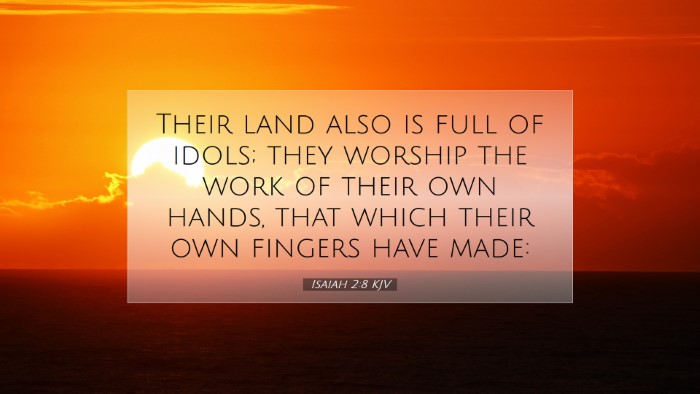Commentary on Isaiah 2:8
Isaiah 2:8 states:
"Their land also is full of idols; they worship the work of their own hands, that which their own fingers have made."
Context and Overview
The book of Isaiah is often considered one of the most profound prophetic texts in the Old Testament, showcasing God's sovereignty, justice, and the hope of redemption. The context of Isaiah 2 speaks of the last days when the mountain of the house of the Lord will be established and exalted, drawing all nations to worship the true God. This verse, however, serves as a stark contrast to the intended worship of God, revealing the state of a nation turned to idolatry.
Theological Implications
Verse 8 particularly highlights two crucial themes: the nature of idolatry and the futility of human-made worship. The phrase "full of idols" illustrates the extent of the problem—widespread and pervasive idolatry showcasing a departure from true worship.
Idolatry and Human Efforts
According to Matthew Henry, this verse indicates that the people have not only embraced idols but have become engrossed in the creations of their own hands. The implication is that idolatry is a reflection of humanity’s desire to control and contain divinity within their own limitations. Henry emphasizes the absurdity of such worship, noting that it reflects a failure to recognize the grandeur and majesty of the Creator.
The Work of Their Own Hands
Albert Barnes expands on the idea of crafting idols, indicating that this represents a broader spiritual bankruptcy. The act of worshiping what they have created symbolizes a rejection of God's rule and sovereignty. It manifests a tragic irony; mankind, made in the image of God, chooses to glorify their own creations rather than their Creator, leading to moral degradation.
Historical Context
Historically, this passage reflects the reality of ancient Israel during Isaiah's time, where the influence of surrounding pagan nations permeated their culture. Adam Clarke notes that the Israelites were not merely passive in their idolatry; they actively participated in rituals that honored these representations, further solidifying their departure from true worship.
Rejection of Divine Authority
The implications for their society were dire. Rejecting divine authority led to social and moral decay. Henry asserts that such practices result in a break in community ethics and a loss of rightful worship, which is central to divine relationship. Clarke adds that the human heart naturally tends towards idolatry when the true object of worship is neglected.
Lessons for Today
For contemporary readers—pastors, theologians, and laypeople—this passage serves as a vital reminder of the propensity of the human heart to create and worship idols. The church today may not fashion golden calves, yet there are many modern idols: money, power, success, and even self-image.
Self-Reflection and Application
Each believer is called to introspection, assessing what they prioritize in their lives in comparison to their commitment to God. Barnes challenges believers to confront the reality of their devotions and affiliations. Are they products of our own hands or reflective of heavenly principles?
- Recognize Modern Idols: Identify what may have taken precedent over the worship of God in personal and communal settings.
- Repentance: Like the Israelites, contemporary society must seek repentance from idolatry and return to worshiping the Creator.
- Renewed Worship: Foster a culture of worship that focuses solely on God’s majesty and creativity, distancing oneself from worldly distractions.
Conclusion
In essence, Isaiah 2:8 serves as a pertinent warning against the allure of idolatry, urging both ancient Israel and modern believers to redirect their worship and acknowledge the supremacy of God. From the insights of Henry, Barnes, and Clarke, the call remains clear: true worship demands recognition of the divine and rejection of any entity that seeks to usurp His rightful place in our lives.


